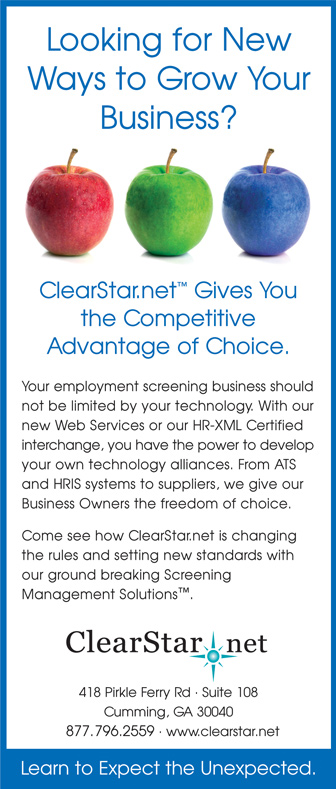| |
 Fourth
Background Screening Industry Survey - January 2008 Fourth
Background Screening Industry Survey - January 2008
Some
of the Key Findings:
Technology
remains key in delivering service, however, industry providers
are placing a lower importance on technology as a differentiator
Virtually all background screening firms provide a technology-enabled
screening service. The industry has evolved over the past few
years and a base level of technology is required even to be considered
a viable service provider.
Integration
of services is expected to increase in all areas
Although
there has been a four year trend of increased requests by customers
to integrate their offerings – especially with HRIS –
integrated services still comprise only a small portion of the
market.
Pricing remains a key factor driving customer purchasing
decisions
Almost 80% of all respondents ranked price among the top three
factors and, regardless of provider size, it was the factor most
cited in the top three.
Large
and medium-sized providers are facing margin pressure
Margin
compression was cited in the top three challenges by over half
of all respondents. In fact, almost 70% of large providers cited
margin compression as a critical challenge
Although
competition remains strong, providers project strong industry
outlook
Large and medium-sized companies continue to grow their customer
base by taking business from other third-party suppliers. The
number of new implementers (companies implementing background
checks for the first time) has decreased to 24% today. This likely
reflects a more saturated market and the level of new implementers
will decrease going forward.
Click
Here To Read the Entire Report

Employers Beware – Resume Fraud A Major Problem
A
recent article in the Boston Business Journal reported that according
to hiring managers and human resource professionals, the falsification
of a resume is a widespread problem. Misrepresentation on a resume
or employment application can take two forms:
·
The making of a false or misleading statement, or
· Omission of significant details about an applicant's
background or employment history.
According
to this article, stretching dates to cover up employment gaps
is the most commonly-caught resume lie. An applicant may believe
that he or she will not be viewed in a favorable light if the
resume reflects periods of unemployment. Also, an open period
of employment may suggest that the reason for leaving the prior
employer may have been for reasons unflattering to the applicant.
To deter misrepresentations, the employer's application or hiring
materials should include a statement that any false or misleading
representations during the application process or the failure
to disclose an important fact will immediately disqualify the
applicant from any further consideration for employment. Finally,
you should resist the temptation, and more importantly convince
management to resist the temptation to overlook misrepresentations
during the application process "because we really need someone."
Misrepresentations on a resume or in the application process may
reveal a character flaw which could prove harmful to the company
in the future if such a person is employed today. Recognize that
in a tough job market, applicants may bend the truth, or lie -
be prepared!
For
More Information Go To: http://rjtlawfirm.typepad.com/

Background
Badges: Records Checks Come With Proof You Passed
Ike
Tippetts' Tempe, Ariz., plumbing business used to do its own criminal
background checks on job applicants using Internet databases that
are easy to access but give incomplete information. When the company
was hiring for a controller last year, Tippetts said, he decided
to do a more thorough check. A local trade association referred
him to CrimShield, a Mesa, Ariz., screening firm. For $55 a person,
CrimShield's licensed private investigators search county, state
and federal court records and other documents to find out whether
both current and potential workers have criminal pasts. But the
company has added a marketing twist to a commonly offered service
-- it issues identification badges to the employees it screens.
The badges include a picture of the employee, CrimShield's logo
and the logo of the company for which they work. The badges also
contain an ID number, which an employer can use to track the employee's
information on CrimShield's database. CrimShield's business customers
can also use the system to send their customers an e-mail before
an employee arrives at their door. The e-mail shows the worker's
picture and states that he or she has undergone a background check.
For
More Information Go To: http://www.courier-journal.com/apps/pbcs.dll/article?AID=/200804210430/BUSINESS/804210323

Would
you hire this man?
Charles
Cullen kept getting hired and fired until his murder arrest. Why
job references say too little.
At
many American companies, managers face gag orders that make prisoners
of war look positively chatty. Forget "name, rank, and serial
number." When someone asks for references on a potential
hire, these bosses are supposed to reveal only job titles and
dates of employment.
Never
mind that the employee pilfered office supplies, harassed the
receptionist, or threatened co-workers. In the lawsuit-phobic
world of corporate America, caution keeps many lips zipped tight,
everywhere from the factory floor to the human-resources office.
But a chorus of legal experts and employment consultants is calling
for a return to the days when job references flowed more freely
and managers didn't need to break rules to criticize - or compliment
- an employee. "I do see why employers are very cautious,
but the policies put a lot of wackos out there in the workplace
because people don't share information," says Peggy Garrity,
a Santa Monica, Calif., attorney who represents employees. While
reliable numbers are hard to come by, it appears that about 70
to 80 percent of American companies forbid employees from giving
out extensive references, says J.H. Verkerke, professor of law
at the University of Virginia.
http://www.csmonitor.com/2004/0301/p14s03-wmgn.htm
The
Harvard Business School projects that bad hires cost employers
three to five times the employees’ first-year salary

|
Hiring Pace to Remain the Same, Says CareerBuilder-USA Today
Forecast
CareerBuilder.com,
an online job site, and USA Today released the results of
their latest survey, conducted by Harris Interactive, tracking
projected hiring trends for the upcoming quarter. The survey,
titled "Q2 2008 Job Forecast," was conducted from
Feb. 11 to March 13 among 2,757 hiring managers and human
resource professionals in private sector companies. "The
job loss reported in the first quarter signified a gradual
deceleration in recruitment in the U.S. as the nation's
economy downshifted," said Matt Ferguson, CEO of CareerBuilder.com.
"In the next three months, employers anticipate marginal
change in their hiring pace. While some industries are experiencing
a contraction in employment levels, areas such as information
technology, health care, professional and business services
and sales continue to add full-time jobs."
For
More Information Go To:
http://www.talentmgt.com/industry_news/
2008/April/2387/index.php

Reference
Checking: The Unsung Recruiting Hero
If talent
managers had an accurate way to help assess whether or not
a potential employee was right for their organizations they
would use it, right? Maybe not. Reference checking, one
of the oldest and most basic recruiting techniques available,
isn't as popular as it perhaps should be.
Dara
Herbst, president of the Certified Reference Checking Co.,
said many in the HR space don't use available resources
such as previous employers, supervisors and co-workers to
help assess applicants' suitability. "More people are
concerned about the criminal aspect than they are how well
[potential candidates] performed in the past," Herbst
said. "Not taking the person's references before you
hire them could cost the company thousands of dollars in
terms of training and lost productivity. If you're not going
to check the person's references, you really don't know
who you're bringing in." The main reason most talent
managers don't check references is it's a time-consuming
process, Herbst said. But talent managers should make time
up-front to ask what she calls deep, penetrating questions
to uncover critical information about a candidate's strengths
and weaknesses.
For
More Information Go To:
http://www.talentmgt.com/newsletters/talent
_management_perspectives/2008/April/606/index.php
|
|

Arrestfree.com
Receives Award from Better Business Bureau
 |
Arrestfree.com
founder, Kenneth Coats was presented with the 2007 "Complaint
Free" award by Better Business Bureau President Steve
J Bernas. This award is presented to businesses that have
demonstrated a commitmenet to serving its customers and
have maintain zero complaints throughout the year in their
business service. In the year 2007, Arrestfree.com received
no complaints or issues during its first full year of operation.
For
More Information About ArrestFree.com visit the company's
website: www.arrestfree.com |

ClearStar.net Releases New Gateway Web Services
ClearStar.net,
a leading provider of software-as-a-service solutions for the
employment and tenant screening industry, announced today their
largest ever open integration effort: Gateway Web Services. “Gateway
Web Services provides developers unprecedented access to the ClearStar.net
platform and expands options for direct integration and the creation
of unique applications,” explained Kevin Lenahan, CTO of
ClearStar.net. Entire web sites or components of a web site can
now be built using Gateway to address specific business or client
needs, without having ClearStar.net being directly involved in
the development effort. Using Gateway to build applications allows
businesses to leverage the strong security, scalable infrastructure,
and business experience that are hallmarks of ClearStar.net.
For
More Information Go To: www.ClearStar.net

| |
This Month’s Challenge is sponsored by:
The
2008-2009 Background Screening Industry Buyers Guide
(Last
Chance, Time is Running Out)

As the background
screening industry continues to get more competitive the firms
that will ultimately succeed will be those that create competitive
advantage through their people by offering continuous learning
opportunities to heightened their knowledge and capabilities.
We believe that having employees that are very knowledgeable about
the legal landscape of background screening is essential to continued
success.
We are grateful
to Pam Devata, Seyfarth
Shaw LLP for providing the expertise for this valuable
endeavor. For information regarding the answers to the Legal Challenge
Questions, please contact Pamela Devata at Seyfarth Shaw LLP at
pdevata@seyfarth.com
or 312-460-5000 or visit www.seyfarth.com.
Please choose
your answer by clicking on it:


Data
Loss Problems Still Not A Priority At Most Companies
The
tech industry's out to thwart data breaches at supermarkets, on
social networks, in banks and schools, and across government and
business, but it has a long way to go to get out the word about
available products. Identity theft remains a big issue, yet relatively
few companies plan to use data loss prevention products on their
computers. In one data theft divulged in March, grocer Hannaford
Bros. said hackers might have gotten credit and debit card numbers
and expiration dates for as many as 4.2 million customers. Fraudulent
buying reportedly followed the breach. "There's clearly a
real crisis in data security right now," said Tom Corn, a
vice president in data security at EMC's RSA security unit. But
few firms consider data loss protection and disk encryption methods
till after a problem arises, says Forrester Research analyst Natalie
Lambert. "They think a full disk encryption solution is protecting
the data," Lambert said. That, she says, is a misconception.
"The reality is, when the machine is turned on, the data
is anyone's game." Lambert says companies need a more comprehensive
approach to truly protect data. Forrester found that about 25%
of firms it polled in the third-quarter of 2007 employ some kind
of data leak prevention system. Another 16% to 17% plan to adopt
such products within 12 months. But that leaves far more than
half of companies polled, most based in North American and Europe,
with no specific plan to adopt technology for data loss prevention.
For More Information Go To:
http://www.investors.com/editorial/IBDArticles.asp?artsec=17&artnum=1&issue=20080401

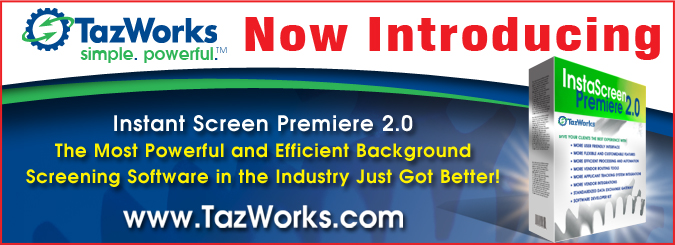

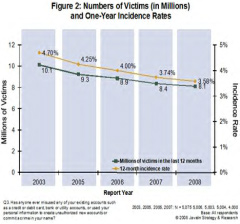
“The
number of annual victims dropped 300,000 in 2008 to 8.1
Million US Adults.” (Page 5)
|
2008 Identity Fraud
Survey Report: Identity Fraud continues to Decline, But
Criminals More Effective at Using All Channels
The
Javelin 2008 Identity Fraud Survey Report provides a detailed,
comprehensive analysis of identity fraud in the United States
in order to help consumers and businesses better understand
the effectiveness of methods used for its prevention, detection
and resolution. A nationally representative sample of over
5,000 US adults, including 445 fraud victims, was surveyed
via a 49-question phone interview to gain insight into this
crime and the effects on its victims. This report is issued
as a longitudinal update to the Javelin 2005, 2006, and
2007 Identity Fraud Survey reports.
Download
the Report Brochure or Purchase
the Report
http://www.javelinstrategy.com/Newsletter_02_27_08.html |

Employees
The Weakest Link In IT Security
There
is growing recognition among employers that, however much time
and money they spend on ramping up their IT security, it counts
for very little if they fail to change the practices and mindset
of their workforce. More and more firms are clamping down on their
IT security, a study in the UK by consultancy PricewaterhouseCoopers
has found, with seven out of eight large businesses now claiming
to have a security policy in place. But the research among more
than 1,000 employers conducted with the government's Department
for Business, Enterprise & Regulatory Reform has concluded
that, without changing people practices, this flurry of activity
is a waste of time. Yet a series of high-profile data breaches
and losses of personal information by the government over the
past few months may mean that attitudes are finally changing.
The PwC research identified changing employee behaviour as the
key to improving information security. “It is a bit like
the road speed limit – everyone knows what they ought to
do, but only a few actually do it. Only when behaviour changes
do businesses realise the benefits of a security-aware culture,"
he concluded.
For
More Information Go To: http://www.management-issues.com/2008/3/27/research/employees-the-weakest-link-in-it-security.asp

Whodunit?
Was it the receptionist, the salesman or the building manager
who gave away company secrets? Here's how to find and stop the
leaks.
How
far will you go to defend the privacy of your customers' and employees'
personal data?
Trusting
an employee with access to mission-critical or sensitive systems
is a risky but unavoidable gamble. Let's face it: People are wild
cards. Just as casinos thwart cheaters at every table or station
on their floors, so, too, can IT officials thwart breaches by
customizing security plans for individual employees in every zone
of their companies. In fact, casino practices can be translated
to the corporate IT world to create at a common-sense list of
do's and don'ts for redoubling security based on who does what
job. The lessons we learn reveal that it's never wise to entrust
your business's most valuable or vulnerable assets to a single
employee. Instead, compartmentalize access whenever possible,
and never hesitate to look over employees' shoulders. Above all,
follow the golden rule of a casino: Gauge your level of risk and
develop airtight audit trails, urges Bruce Schneier, a security
expert Schneier adds that "If you look at a casino floor,
you will notice immediately that people are watching people,"
he says. Just as edgy casino managers constantly size up everyone
on the floor as potential security threats, so must corporate
IT security leaders size up every employee. "People are the
weakest link in security. Playing by the rules is non-negotiable
at casinos, where the stakes are high. Corporations that have
just as much to lose must constantly communicate the same message.
Only then will granting the privilege of access no longer be such
a gamble.
For
More Information Go To: http://www.computerworld.com/action/article.do?command=viewArt
icleBasic&articleId=315599&intsrc=hm_list

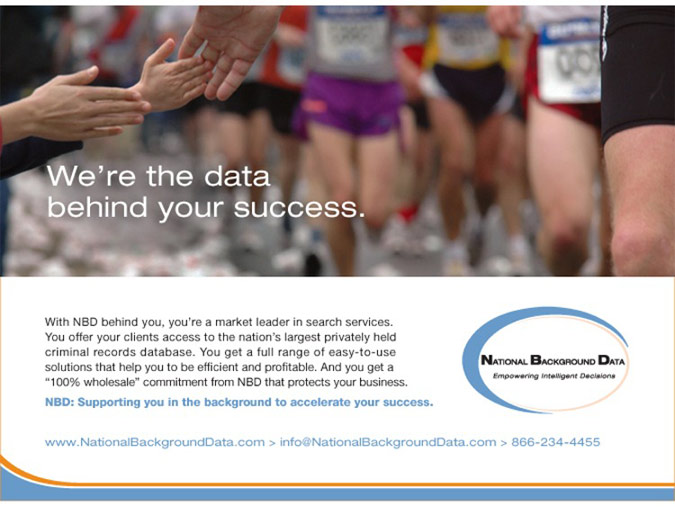

NEW
BOOK ON BACKGROUND SCREENING AND INVESTIGATIONS: |
Want
to Learn About the Latest Issues and Contemporary Views About Background
Screening?
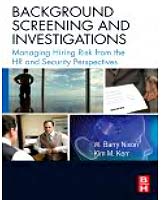 |
Background
Screening and Investigations
Managing Hiring Risk from the HR and Security Perspectives
By W. Barry Nixon,
SPHR and Kim Kerr, CPP
352 pages 16 ills
Copyright 2008
USD 49.95, Reference
Butterworth-Heinemann
Title
ISBN: 978-0-7506-8256-5
To Order
Click
Here
|


Snapshot
of Bruce Berg’s NAPBS Conference Report
The attendance
at the conference grew by 13% over last year to a whopping 689
attendees, with over 100 first timers. The quality, content and
organization of this year’s conference were way beyond what
I called last year as “Another bang up year for napbs and
our industry.” There was so much going on it could have
easily stretched into another full day.
The feedback
from the 62 fellow exhibitors was very positive although they
and the attendees would really have liked even more face to face
time to just network, talk, meet and greet. This conference is
obviously a great opportunity for the industry to meet with potential
suppliers and do business.
There was
much official and informal discussion on accreditation. Seems
one major concern is creating a process so as to avoid litigation
attorneys from attacking the napbs or its members for not including
certain criteria in the accreditation or not measuring/inspecting
properly. The key is to set standards, become accredited against
those standards, make it affordable, yet effective, and be able
to take away an accreditation, all without creating liability
for the organization. The outgoing chair, Art Cohen, thinks we
can work past this and the incoming chair, Larry Lambeth, feels
strongly that we need to find a way. So, it looks like 2008 may
be the year.
Art Cohen
reported that napbs is working diligently to align with other
related associations and organizations to build our power base
when we need to put our position before the lawmakers. These include
SHRM, ASIS, CDIA, NASA, NCRA. They are also looking to create
a grievance protocol when a member is found to not be in compliance
with good practices. The education sessions held monthly via webex
have been quite successful with over 100 attendees per session
and will continue.
Most everyone
reported that sales are up in Q1 over 2007. But, people also said
that based on the same customer base as 2007, Q1 sales were down
for that same customer base; admitted decreases ranged from 5%
to 15%. Macroeconomics is having an impact on our industry, yet
the mood was still very upbeat.
To Read The
Full Report Go To: http://www.bergconsultinggroup.com/id62.html

STOP
STRUGGLING WITH WRITING AND PUBLISHING YOUR NEWSLETTER: |
We
can help you have a high quality e-newsletter to help nurture
your relationship with your clients and attract new clients. Our
customized newsletter service will take over your newsletter task
or create a new one for you. We can manage the creation of your
newsletter for you.
We
are constantly researching information to use for The Background
Buzz and you can put our research to use for you. Using the
information rich content from The Background Buzz (minus
the ads and competitors information) we will create a custom newsletter
for you.
Use
your staff’s time to do more valuable work and save all
the hassle of researching or writing articles, formatting and
managing all the other ezine tasks with our customized ezine process.
Contact
Barry Nixon at 949-770-5264 or at wbnixon@aol.com
for more information.

One
Place! Many Suppliers! |
Looking
for the Top Suppliers in the Industry? Need to find a new Supplier?
Visit PreemploymentDirectory.com’s
VENDOR SHOWCASE which features suppliers to the
Background Screening Industry (go to www.PreemploymentDirectory.com,
click on ‘Click Here’ and then scroll down to Vendor
Showcase for Background Screening Industry Suppliers)



NAPBS
International Education Sessions A Smashing Success
NAPBS’
venture into the international arena to establish a global alliance
of professional background screening and investigations firms
took another big step by hosting two educational sessions at the
annual conference. With a standing room only crowd the three international
speakers: Guy Underwood, CEO, RISQ
Group, Australia, Tejas Sanghvi, Supersoft,
India and Michael Damm, ISB,
Canada did an excellent job of describing some of the essentials
regarding conducting background screening in their respective
countries. There was a lively question and answer session, and
let us not forget the outstanding moderating by Les Rosen, ESRCheck
who lent his expertise and humor to the panel discussion. The
next frontier for the International Committee’s Education
Committee will be to start focusing on webinars for the international
screening community.

Drug
And Alcohol Testing By Employers In Canada
Two
significant decisions have been rendered that add clarity on the
state of the law on drug and alcohol testing by employers in Canada,
one by an arbitrator in Ontario and the other by the Quebec Court
of Appeal. In Greater Toronto Airports Authority v. Public Service
Alliance of Canada, Local 00041 ("GTAA"), Arbitrator
Jane Devlin reviewed the drug and alcohol policy applicable at
Toronto’s Lester B. Pearson International Airport, and in
Section locale 143 du Syndicat canadien des communications, de
l’énergie et du papier c. Goodyear Canada inc.2 ("Goodyear"),
the Quebec Court of Appeal assessed an arbitrator’s review
of Goodyear’s drug and alcohol policy. Although these decisions
add some new distinctions, the traditionally accepted principles
related to drug and alcohol testing by employers in Canada remain
valid. A central issue in both the GTAA and Goodyear decisions
was random drug and alcohol testing. Consistent with the jurisprudential
trend on this issue, both Arbitrator Devlin and the Quebec Court
of Appeal struck down the parts of the employers’ policies
that dealt with random drug testing for employees in sensitive
positions. In view of these two recent rulings, it can now be
definitively asserted that random drug testing by employers in
Canada is prohibited, even in safety-sensitive positions.
To
Read the Full Article Go To: http://www.mondaq.com/article.asp?articleid=59398&email_access=on

|
New
risks from Japan’s SOX law
Subsidiaries
of Japanese firms are at risk as Japan introduces its own
Sarbanes-Oxley Act. Subsidiaries and affiliates of Japanese
firms could be exposed to risks associated with new Japanese
internal controls and financial reporting laws, which came
into force on April 1. J-SOX aims to improve the transparency
and accountability in business processes for all Japanese
listed companies. Japan's Financial Instruments and Exchange
law, or J-SOX, as it is informally known, is modelled on
the US' Sarbanes-Oxley Act. The law requires companies to
review how risk is managed across the entire group, and
focus on the risks that could create material misstatements
in financial reporting.
http://www.strategicrisk.co.uk/story.asp?s
ource=srbreakingnews&storycode=370594

United
Kingdom: Data Theft - An Inside Job
In recent years,
employers have become increasingly vulnerable to resentful
employees misusing or stealing electronic data. As more
and more businesses rely on technology for essential processes,
it is no longer enough for them to think only in terms of
controlling access to physical documents. Modern technology
allows for the transfer and/or exchange of huge volumes
of electronic data in a matter of minutes. Unfortunately,
this means that a disgruntled or departing employee can
easily destroy, steal or misuse valuable proprietary information.
He/she may even choose to pass on commercially sensitive
data to a competitor, leaving his/her former employer potentially
exposed to a loss of profit and/or costly litigation. Businesses
sometimes find that a vindictive departing employee has
deleted or destroyed data and, on occasion, gone to extreme
lengths to wipe all information from a computer or other
electronic device. There have even been cases where equipment
has been physically damaged. Prevention is better than the
cure and businesses can safeguard their electronic data
by introducing and enforcing policies that cover:
To Read
the Full Article Go To: http://www.mondaq.com/article.as
p?articleid=58590&email_access=on
|
|

UK
Business Foresees 'Bumpier Ride': CBI
CBI downgrades
2009 economic growth to 1.7%, consumption is forecast to slow
to just 1.6% this year. The CBI has downgraded its 2008 outlook
for UK growth, and it forecasts even slower growth in 2009 due
to continued troubles in the credit markets, rising commodity
prices and weak domestic and global demand. In its latest quarterly
economic forecast, the UK’s business group has lowered its
figure for this year’s rate of GDP growth down 0.2% to 1.8%.
At the same time as the economy slows, inflation is due to rise.
The CBI expects that the CPI rate of inflation will peak at 3.2%
in Q3 of 2008, forcing the Governor of the Bank of England to
write a second letter to the Chancellor. This compares with 2.7%
predicted in the previous forecast. Due to the slowing economy,
however, inflation is expected to come down in the longer term.
So, the CBI expects the Bank of England will be able to cut interest
rates in the second and fourth quarters of this year, with one
more reduction early next year. This would bring interest rates
down to 4.5% by early 2009. Richard Lambert, the CBI’s Director-General
said: ‘Having enjoyed two years of strong growth, we are
now living in uncertain times. We are facing a financial shock
on a scale not experienced in recent times, which is coming on
top of already slower growth.
http://www.strategicrisk.co.uk/story.asp?source=srfinancial&storycode=370395

The
Case Against Vetting
Checking
that the people who work with our children will not endanger them
seems like a sensible policy. Children are vulnerable and we don’t
want to put them in harm’s way. A succession of high-profile
tragedies, from the Dunblane massacre to the Soham murders has
only heightened anxiety about safety. However, when everyday community
activities - school discos, parent-teacher councils, local sports
clubs - now require a higher level of security clearance than
the selling of explosives or firearms, surely it is time to call
a halt to the ever-expanding culture of vetting. Criminal records
vetting was once for people in unusual positions, such as spies
and judges; now millions of fathers and mothers need the all-clear
before they can go on school trips, become school governors, or
volunteer with the local boys’ football team. There has
been almost a 100 per cent rise in the annual number of criminal
checks issued by the Criminal Records Bureau (CRB) since 2002,
and the CRB recently announced its ten millionth disclosure. The
Safeguarding Vulnerable Groups Bill, due to return to the House
of Commons next week, will mean that 9.5million adults - one third
of the adult working population - will be subject to ongoing criminal
checks.
For More Information Go To: http://www.spiked-online.com/index.php?/site/article/1888/

INTERNATIONAL
RESOURCE CENTER |
We
have greatly enhanced our International Resource Center to be
a valuable resource for anyone looking for information on doing
international background verifications, vetting or verifications.
It includes information on international data protection and other
laws, terrorist searches and much more. Also included is very
practical information on time zones, locating cities, holidays
in different countries, etc.
Australia
Federal
Privacy Laws
State Privacy Laws
Canada
Employers - What You Need To Know About Social Insurance
Numbers

International Training Resources
We have added International Training Resources to the International
Resource Center. We will update this section as we identify new
training and educational opportunities.
Bookmark this valuable resource so you can use it over and over.
To
view the International Section go to www.PreemploymentDirectory.com
and look under the gray line like below in the middle of the page:


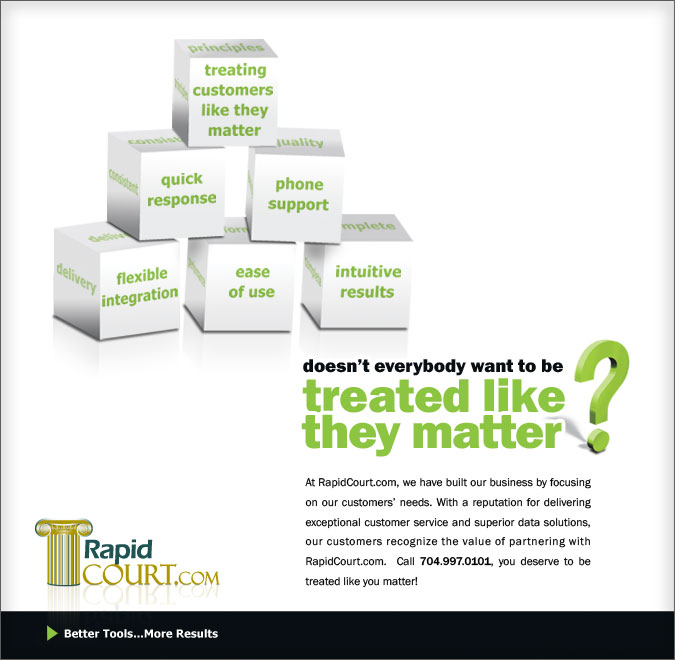

|
SURVEY OF NONPROFIT HUMAN SERVICES ORGANIZATIONS REFEREMCE
CHECKING PRACTICES |
Many
Nonprofits Shun Volunteer Checks, Crime Victim Group Says
The
National Center for Victims of Crime conducted a telephone survey
of 517 nonprofit human service organizations to identify: characteristics
of organizations that regularly screen volunteers, the screening
methods used, and how information revealed byscreening is used
in decision making. Most organizations say they conduct some screening,
but few conduct thorough screening using all available methods
of gathering information, including reference and background checks.
In fact, one in four organizations does not call references for
potential volunteers, and 27 percent do not conduct any type of
background check. Less than one-third use fingerprints, the most
reliable form of criminal background check. Most organizations
say they would not accept a volunteer with a criminal history
or a report of child or elder abuse, but some that said they would
disqualify on that basis are not checking the sources of that
information. For most organizations and volunteers, credit history
is not an issue.
To
Read the Full Report Go To: http://www.ncvc.org/ncvc/AGP.Net/Components/documentViewer/Download.aspxnz?DocumentID=44797


We invite
you to pull up a chair, take a break and join us in the Background
Bistro to sip a latte and chat with this weeks guest:
 |
This
week Nick Cramer, Sales Director, Deverus
took some time to sit down and talk to us in The Background
Bistro. Nick gave us some insight into his day to day duties,
aspects of his personal life and the direction that Deverus
is headed.
As the
head of sales for a technology focused firm Nick spends
the majority of his time bringing in clients, traveling
and introducing new Deverus
technology. This job really keeps
|
|
me on the go, just last week I was in San Diego and right
before that I was in D.C. Earlier this year I was also in
Los Angeles, Denver and Chicago talking to prospective clients.
Cramer
plays a vital role in helping background screening companies
implement technology so that they are able to operate and
perform at an optimum level. He believes that by helping
companies become 100 percent automated and increase revenue
streams Deverus has
become a strong force in the background screening industry.
Before
joining Deverus, Nick
was in network administration and sales and he wanted us
to know that he is a true tech guy. He loves understanding
the inner working of computers and systems and has in depth
knowledge of how information is processed. He feels this
helps him in his day to day duties a great deal because
understanding technology is essential to his job.
Deverus
is a technology provider and we focus on giving companies
what they want, where they want it and when they want it.
Our company takes a streamline approach to solution solving
that encompasses all aspects of H.R. We help them to improve
upon their existing technology so that they can make improvements
that will allow their business to gain a competitive advantage.
For example, we introduce a new service almost every month,
sometimes two. Recently, it was our I-9 and E-screen products
and shortly after that will be our Nation Wide Instant Super
Search. In addition, despite our focus on technology, we
do not forget that Human Resource Managers are always looking
for good customer service so we give them the technology
they want with a smile and go the extra yard to keep them
happy.
We do
a number of things to stay ahead like investing heavily
into the industry by traveling to relevant trade shows and
conferences. We take the time to really listen to our clients.
We take their feedback seriously and make changes accordingly.
We have a full-time development staff and stay quite active
with the N.A.P.B.S. which helps us to stay innovative and
ahead of the curve. Our clients also like our response time
and feel that we are very knowledgeable.
On the
personal side Nick was quick to point out that he is single
and really takes advantage of his free time. He shared that
going to the lake is a big one for him. I also enjoy working
out and going to the gym. Riding my Harley and playing the
guitar with my buddies are a few of the other things that
I enjoy doing during my time off. It also turns out that
Nick is really into music, all types of music. He said,
“You name it and I listen to it. I am a big music
person and have a wide variety of taste. Living in Austin
there is no shortage of music at all. I love anything live.
If I can go to see it then I‘m there.
In a
reflective moment, Nick offered that he thought that the
industry needs continuous innovation in technology and customer
service. His final thought was that we need to listen to
what our clients have to say and then give them exactly
what they want. Of course, I believe that leading the way
with innovative technology is the best way to keep our clients
happy.
To Contact
Nick email him at NCramer@Deverus.com
or visit www.Deverus.com
|

|
UPCOMING CONFERENCES & EVENTS |
2008 Events (Click
Here to View full list of 2008 Events)
SHRM
State Conferences, visit http://www.shrm.org/conferences/state/CMS_004287.asp
Drug
and Alcohol Testing Industry Association (DATIA), 2008 Training
Course Schedule, visit http://datia.org/
National
Association for Professional Background Screeners (NAPBS),
2008 Webinar Schedule, visit http://www.napbs.com/content.php?id=289
World
Federation for Personnel Management, Events, http://www.wfpma.com/dates.html

|
ADVERTISERS IN THIS EDITION |

|
|














